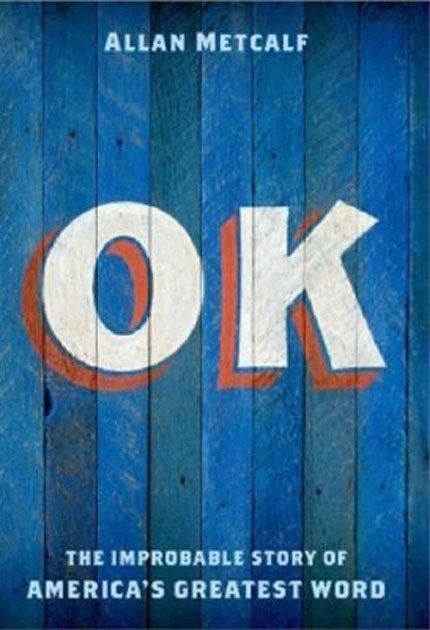OK, By Allan Metcalf
A brief history of a little marvel

Your support helps us to tell the story
From reproductive rights to climate change to Big Tech, The Independent is on the ground when the story is developing. Whether it's investigating the financials of Elon Musk's pro-Trump PAC or producing our latest documentary, 'The A Word', which shines a light on the American women fighting for reproductive rights, we know how important it is to parse out the facts from the messaging.
At such a critical moment in US history, we need reporters on the ground. Your donation allows us to keep sending journalists to speak to both sides of the story.
The Independent is trusted by Americans across the entire political spectrum. And unlike many other quality news outlets, we choose not to lock Americans out of our reporting and analysis with paywalls. We believe quality journalism should be available to everyone, paid for by those who can afford it.
Your support makes all the difference.Yes, well, um, all right, according to Professor Metcalf of the American Dialect Society: "it could be argued that OK is America's greatest invention." In reaching this conclusion, his dinky book surveys a term which, serving as exclamation, adjective, adverb, noun and verb, he sets above such physical American inventions as the telephone, hula hoop and variable-speed windshield wiper: "these merely influenced our lives; OK influences our thinking."
This could sound like a man in the grip of an obsession besides which similar chroniclers of cod, dust and paper-clips appear to be restraint itself. As a glimpse into American history, however, OK provides a beguiling perspective upon linguistic serendipity. Even now, there are various theories about the word's origins. Go into any pub and there is sure to be somebody as insistent as professor W S Wyman. A century ago, he was paid good money to commit to print the view that OK derives from the Choctaws, who end every sentence with "okéh" as the equivalent of "it is true". Wyman inferred that General Jackson, who thus annotated documents, "was frequently among the Choctaws and Chickasaws... He must have heard this expression often."
Balderdash. Many must have blinked and missed its first appearance, in the Boston Morning Post on 23 March 1839. That Saturday, it was part of an abbreviative craze: "all correct". It might easily have sunk but for an election the following year. The President, Martin Van Buren, sought a second term, and a canny PR flunkey noted that, no longer young, Buren hailed from upstate Kinderhook. In the hurly burly, Old Kinderhook was established as a nickname.
So it goes on, with Metcalf reprinting a surreally inspired, rough-hewn poem which turns numerous variants on the word – and appeared in a newspaper during the campaign. Oddly, Metcalf overlooks the Gershwins' collaboration with PG Wodehouse on the musical Oh, Kay! (and also Radiohead's OK Computer). The Gershwin title song is fluffy, paling beside the show's hit, "Someone to Watch Over Me". That song had begun as a breezy inconsequentiality; accidentally slowed, its plaint prompted Howard Dietz to supply a title which had Ira leaping from his convalescent bed to do the rest. If that is my diversion, it's true to OK's spirit – which could find an honoured place in a whole brisk study of the creative mistake.
Join our commenting forum
Join thought-provoking conversations, follow other Independent readers and see their replies
Comments